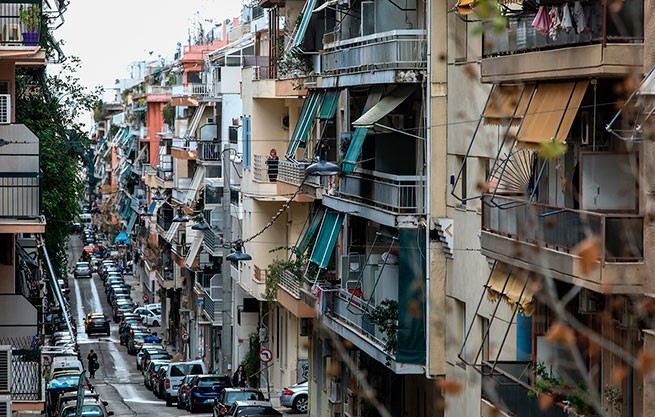Cooking fresh greens usually requires washing, peeling, and chopping. However, before placing it in the sink, you need to think about whether it is worth it? As experts warn that there are some leafy vegetables that should not be washed before eating.
What should never be washed
It is common knowledge that vegetables brought home from the supermarket should be rinsed quickly before being cut and put on a plate, even if they already look clean. But no matter how consistent your kitchen hygiene may be, any leafy vegetables pre-packed in a vacuum bagshould never be washed before cooking, experts say.
“Repeated washing at home can really increase the risk of leafy greens picking up bacteria from the sink, countertops, cutting boards, knives and other kitchen items or surfaces it comes into contact with during the washing process,” Neva Cochran, Eating Well, told Eating Well. nutritionist, nutrition consultant and advisory board member for leafy greens marketing agreement healthstories.gr.
Your kitchen is more likely to contaminate the greens when you wash it.
No one likes the idea of eating bacteria-contaminated food cooked in a dirty kitchen. But when it comes down to it, even the most well-kept kitchen spaces in the home don’t come close to the cleanliness standards of places where packaged greens are processed. “Leafy greens in sealed bags labeled ‘triple clean’, ‘washed’ or ‘ready to eat’ are produced in facilities inspected by a government regulator and are operated according to good manufacturing practices,” the expert says.
Other experts point out that modern procedures and methods have made it easier to deliver ready-to-eat leafy products that are safe to consume. “Pre-washed greens are treated with a mixture of water and a food disinfectant such as hydrogen peroxide or chlorine,” said Randy Vorobo, professor of food science at Cornell University. A mixture that the Environmental Protection Agency (EPA) says does not pose a hazard when stored at low levels, which “reduces and prevents the spread of bacteria from the surface of the product.”
However, just because you no longer rinse your pre-washed herb doesn’t mean you shouldn’t take precautions before eating it.
And while chopped lettuce, a mix of greens, or arugula may be good enough to be sent straight out of the bag into a salad bowl, Still, there are a few proven rules to follow. Wash your hands with warm water and soap for 20 seconds before touching food.
It’s also best to make sure all surfaces, such as cutting boards or mixing bowls, are cleaned or sanitized before putting lettuce on them.
And remember that sometimes the kitchen sink itself can be the most likely place to contaminate your food, so be sure to clean it thoroughly before you start cooking.
Never wash meat or poultry before cooking
But not only pre-washed leafy greens should not be washed when cooking. According to the Centers for Disease Control and Prevention (CDC), rinsing meat, poultry, or eggs is also a bad idea. “Washing raw meat, chicken, turkey, or eggs can introduce germs to sinks, countertops, and other kitchen surfaces,” the service warns. “These germs can infiltrate other foods, such as salads or fruit, and make you sick.”
The USDA says it’s no longer necessary to rinse meat or poultry thanks to modern commercial washing methods. Whereas washing “to remove dirt, grease or blood may have been appropriate a few decades ago. Today, the modern food safety system does not require this,” the USDA said in a statement.
According to eatthis.com, meat and poultry are fairly well cleaned during processing. Therefore, any further washing is an unnecessary additional risk.






More Stories
Caution: Plague detected in arthropods
Medicines and vitamins that should not be taken with dairy products
Coffee: How the Number of Cups We Drink Affects Us